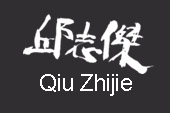 |
Micropolitics: Reflecting On History Through the Individual |
|||||||
|
Foucault used a research methodology grounded in genealogy to further his own distinctly anti-structuralist vision of power at the micro level. The control exercised by this power seems separate from politics, sovereignty, forced control, systematic function, and other traditional concepts of power systems. And yet the specificity, multiplicity, relativity, and productivity of micropower render it a tactic of control, ubiquitously built into every kind of power network throughout today's society. The subject of this power, however, remains elusive, as individuals function simultaneously as the tools and owners of power. At the same time, this widespread tactic of social control also produces various types of domination. Much of Qiu Zhijie's early work focuses and reflects upon the control exercised over thought by “abstract concepts” which are in fact invisible manifestations of ideological control. For example, the Fine series discusses how we are brainwashed via notions of “body image” and “training”. Elysium: Ornaments from the West and the interactive multimedia work, The West , illustrate how our understanding of “ westernness ” has permeated our everyday life. April 8 asks the participants to transcribe a newspaper; while the newspaper's text regulates the content they produce, their handwriting becomes a sign of their identity, a literal signature. The writings are then made into a calligraphy mold, thus standardizing the writers' individual identities into a mechanism for reproduction. The work thus explores how “social norms” emerge in the space between the public and the accidental. These works all relate to the artist's own judgments on reality and on his own work, perhaps also including some speculation on “control and freedom”. He creates new systems of knowledge and invents a new vocabulary, through which he becomes conscious of limitations, reflecting on the possibility for individual movement and escape. He then reflects upon and builds a series of relations internal to the system itself, creating something that lies just out of the grasp of existing systems of knowledge. “Truth is doubtless a form of power,” Foucault once said in an interview . How does the artist, as a specific kind of intellectual, accomplish critical work in the current environment? The nature of this critical work has already been transformed by Nietzsche's questions into one of how we use “truth” to create value, to the extent that we vest it with absolute control. Moreover, today the question has grown more complicated, no longer an issue of simply abandoning or refusing history or reality, but of another form of examination. How can this working process caution us to investigate the role of the “hand of history” as we examine and evaluate the values we have constructed? More importantly, how do we establish here a system of self-examination, or rather, how do we become clear on what we are doing? (This work of assessing oneself is an important part of intellectual life.) Qiu Zhijie's works Elysium: Ornaments from the West (1999) and Tibet Project: The Railway from Lhasa to Kathmandu (2007) demonstrate a critical reflectivity on history, which lends them an air of genealogy. Perhaps his critical project is not to “write” a history of “resistance”, but rather to think through the complicated elements of the entire historical process, in order to “write” a political history in the context of the “truth” produced by history. In Nanjing Yangtze River Bridge Project (2007-09), Qiu Zhijie's work took on an intense consciousness of its own authorship. In this project, he turns his work of an “archaeology” of history into a series of discursive installations, which in turn touch upon national narrative and individual experience, upon nation-state politics and human fate. He places the discursive system behind these hidden power relations into a functional structure for analysis and debate. By investigating the ways in which individual lives and events transcend the constructed “histories” of these interwoven eras, he analyzes and renders judgment upon our own era and history. Michel Foucault: Psychiatric Power , Chinese trans. by Yan Feng, Shanghai People's Publishing House, 1997, p.32 |